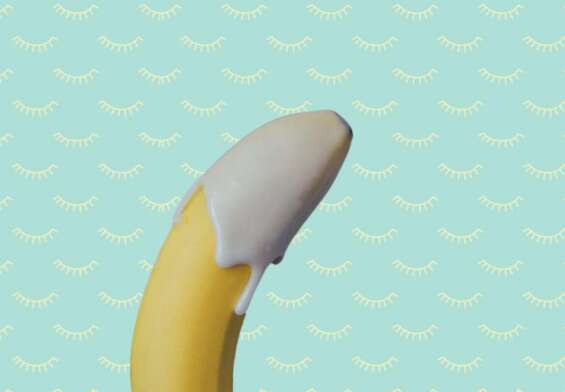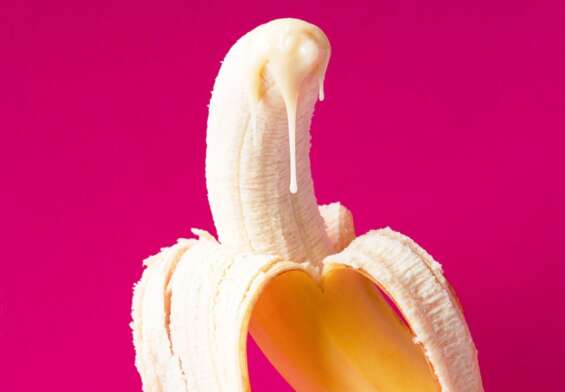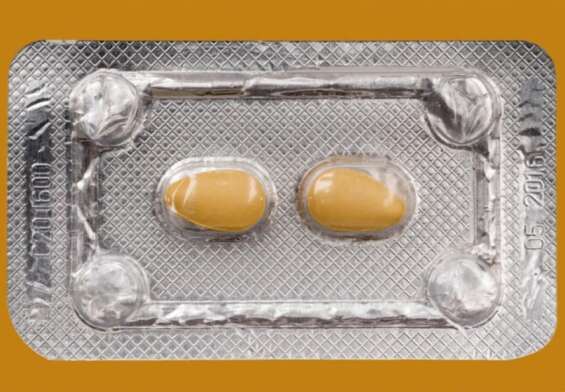
Put an End to Dry Skin on The Penis with These Simple Tips!
Hey, FitGAG readers! Are you dealing with dry skin on your penis? Don’t be shy – you’re not alone! Dry skin on the penis is a common condition that affects men of all ages. In this article, we’ll explore the symptoms, causes, and treatments of dry skin on the penis, so you can get back to feeling your best. Whether you’re looking for over-the-counter treatments, prescription medications, or natural remedies, we’ve got you covered. So, let’s get started!
Why Does Dry Skin Occur on the Penis?
Dry skin can be caused by a variety of factors, both internal and external. Understanding the underlying causes of dry skin on the penis is key to finding an effective treatment. In this section, we will explore the various reasons why dry skin occurs on the penis.
Skin Anatomy and Function
The skin on the penis is composed of three main layers: the epidermis, the dermis, and the subcutaneous tissue. The epidermis is the outermost layer of skin and serves as a barrier to protect the body from external elements. The dermis is the middle layer of skin and contains blood vessels, nerves, and hair follicles. The subcutaneous tissue is the deepest layer of skin and is made up of fat cells.
The skin on the penis is also unique in that it is more sensitive than skin in other areas of the body. This sensitivity is due to the high concentration of nerve endings in the penis, which can be easily irritated.
External Factors that Contribute to Dry Skin
External factors that can cause dry skin on the penis include:
- Harsh soaps and detergents
- Hot showers or baths
- Cold weather
- Low humidity
- Friction from clothing or sexual activity
These factors can strip the skin of its natural oils, leading to dryness and irritation.
Internal Factors that Contribute to Dry Skin
Internal factors that can contribute to dry skin on the penis include:
- Dehydration
- Poor nutrition
- Hormonal imbalances
- Chronic health conditions, such as diabetes or thyroid disease
These factors can affect the body’s ability to produce and retain moisture, leading to dry skin.
Understanding these internal and external factors can help men take steps to prevent and treat dry skin on the penis.
Common Causes of Dry Skin on the Penis
Dry skin on the penis can be caused by a variety of conditions. In this section, we will explore some of the most common causes of dry skin on the penis and their symptoms.
Eczema
Eczema, also known as atopic dermatitis, is a chronic skin condition that causes dry, itchy, and inflamed skin. The exact cause of eczema is unknown, but it is believed to be caused by a combination of genetic and environmental factors.
Symptoms of eczema on the penis may include:
- Dry, scaly patches of skin
- Itching
- Redness and inflammation
- Cracked skin
- Blisters
Psoriasis
Psoriasis is a chronic autoimmune condition that causes the rapid buildup of skin cells, resulting in thick, scaly patches of skin. The exact cause of psoriasis is unknown, but it is believed to be related to an overactive immune system.
Symptoms of psoriasis on the penis may include:
- Thick, red patches of skin covered in silvery scales
- Itching or burning
- Dry, cracked skin
- Bleeding
Contact Dermatitis
Contact dermatitis is a skin condition that occurs when the skin comes into contact with an irritant or allergen. The most common causes of contact dermatitis on the penis include harsh soaps, detergents, or condoms.
Symptoms of contact dermatitis on the penis may include:
- Redness and inflammation
- Itching or burning
- Dry, scaly patches of skin
- Blisters or oozing
Allergies
Allergies can also cause dry skin on the penis. Common allergens include certain foods, medications, and latex.
Symptoms of an allergic reaction on the penis may include:
- Itching or burning
- Redness and inflammation
- Hives or rash
- Swelling
STDs
Certain sexually transmitted infections, such as genital herpes or syphilis, can also cause dry skin on the penis.
Symptoms of an STD on the penis may include:
- Painful sores or lesions
- Itching or burning
- Redness and inflammation
- Discharge
Understanding the causes and symptoms of dry skin on the penis can help men take the appropriate steps to prevent and treat this condition.
Risk Factors for Developing Dry Skin on the Penis
While dry skin on the penis can occur in any man, there are certain factors that may increase the likelihood of developing this condition. In this section, we will explore the most common risk factors for dry skin on the penis.
Age
As men age, their skin naturally becomes drier and thinner. This can make them more susceptible to developing dry skin on the penis.
Poor Hygiene Habits
Poor hygiene habits can also increase the risk of developing dry skin on the penis. Failing to clean the penis properly can lead to a buildup of bacteria and dead skin cells, which can cause dryness and irritation.
Chronic Health Conditions
Chronic health conditions, such as diabetes or thyroid disease, can affect the body’s ability to produce and retain moisture in the skin, leading to dryness and irritation.
Immune System Disorders
Autoimmune disorders, such as psoriasis or eczema, can also increase the risk of developing dry skin on the penis.
Other risk factors for developing dry skin on the penis may include:
- Living in a dry climate
- Excessive sweating
- Smoking
- Poor nutrition
By understanding these risk factors, men can take steps to reduce their risk of developing dry skin on the penis.
Prevention of Dry Skin on the Penis
Preventing dry skin on the penis involves taking care of the skin and avoiding irritants. In this section, we will explore some of the most effective ways to prevent dry skin on the penis.
Proper Hygiene Habits
Proper hygiene habits are essential for preventing dry skin on the penis. This includes:
- Washing the penis with warm water and mild soap
- Drying the penis thoroughly after washing
- Using a clean towel each time
- Avoiding harsh soaps, detergents, and other irritants
Moisturizing the Penis
Moisturizing the penis can also help prevent dry skin. Men should use a gentle, fragrance-free moisturizer on the penis after showering or bathing.
Avoiding Irritating Products
Avoiding irritating products can also help prevent dry skin on the penis. Men should avoid using perfumed soaps, detergents, or other products that can irritate the skin.
Other tips for preventing dry skin on the penis include:
- Drinking plenty of water to stay hydrated
- Eating a balanced diet rich in vitamins and minerals
- Wearing loose-fitting, breathable clothing
- Using a humidifier in dry climates
By taking these preventative measures, men can reduce their risk of developing dry skin on the penis.
Over-the-Counter Treatments for Dry Skin on the Penis
If prevention methods do not work, there are various treatments available to help alleviate dry skin on the penis. In this section, we will explore some of the most effective over-the-counter treatments for dry skin on the penis.
Moisturizers
Moisturizers are the most common treatment for dry skin on the penis. Men should use a gentle, fragrance-free moisturizer on the penis after showering or bathing. Some moisturizers may contain added ingredients, such as urea or lactic acid, which can help exfoliate and soften the skin.
Topical Steroids
Topical steroids are another treatment option for dry skin on the penis. These medications are available over-the-counter and can help reduce inflammation and itching. However, long-term use of topical steroids can have side effects, so men should use them only under the guidance of a healthcare provider.
Anti-itch Creams
Anti-itch creams, such as hydrocortisone cream, can also help alleviate the itching associated with dry skin on the penis. Men should use these creams sparingly and only as directed.
Other over-the-counter treatments for dry skin on the penis may include:
- Oatmeal baths
- Petroleum jelly
- Natural oils, such as coconut oil or jojoba oil
While over-the-counter treatments can be effective for mild cases of dry skin on the penis, men with more severe symptoms may require prescription treatments.
Prescription Treatments for Dry Skin on the Penis
For more severe cases of dry skin on the penis, prescription treatments may be necessary. In this section, we will explore some of the most effective prescription treatments for dry skin on the penis.
Topical Medications
Topical medications, such as prescription-strength moisturizers or steroids, can be effective for treating dry skin on the penis. These medications are applied directly to the skin and can help reduce inflammation and itching.
Oral Medications
In some cases, oral medications may be necessary to treat dry skin on the penis. For example, antihistamines may be prescribed to help alleviate itching and inflammation.
Light Therapy
Light therapy, or phototherapy, involves exposing the skin to ultraviolet light. This treatment can be effective for treating certain types of skin conditions, such as psoriasis.
Other prescription treatments for dry skin on the penis may include:
- Immunosuppressants
- Retinoids
- Antibiotics
Men with severe or chronic cases of dry skin on the penis should seek the advice of a healthcare provider to determine the most appropriate treatment plan.
Alternative and Home Remedies for Dry Skin on the Penis
In addition to medical treatments, there are various alternative and home remedies that men can try to alleviate dry skin on the penis. In this section, we will explore some of the most effective natural remedies for dry skin on the penis.
Natural Oils
Natural oils, such as coconut oil, jojoba oil, or almond oil, can help moisturize and soothe dry skin on the penis. Men can apply a small amount of oil to the penis after showering or bathing.
Aloe Vera
Aloe vera is a natural plant extract that can help soothe and moisturize dry skin on the penis. Men can apply a small amount of aloe vera gel to the penis after showering or bathing.
Oatmeal Baths
Oatmeal baths can help soothe and moisturize dry skin on the penis. Men can add a cup of finely ground oatmeal to their bathwater and soak for 15-20 minutes.
Other alternative and home remedies for dry skin on the penis may include:
- Chamomile tea compresses
- Honey and olive oil masks
- Cucumber slices
While these natural remedies can be effective for mild cases of dry skin on the penis, men with more severe symptoms should seek medical treatment.
When to See a Doctor for Dry Skin on the Penis
While dry skin on the penis is usually not a serious condition, there are certain situations where men should seek medical attention. In this section, we will explore when to see a doctor for dry skin on the penis.
Symptoms that Require Medical Attention
Men should seek medical attention if they experience any of the following symptoms:
- Severe itching or burning
- Painful sores or lesions
- Bleeding or discharge
- Fever or chills
- Symptoms that do not improve with home remedies or over-the-counter treatments
These symptoms may indicate a more serious underlying condition that requires medical attention.
Tests and Examinations
When men seek medical attention for dry skin on the penis, a healthcare provider will typically perform a physical examination and ask about symptoms and medical history. In some cases, further tests may be necessary to diagnose an underlying condition.
Tests and examinations that may be performed include:
- Skin biopsy
- Blood tests
- STI testing
By seeking medical attention promptly, men can receive an accurate diagnosis and appropriate treatment for their symptoms.
Conclusion
So, there you have it – everything you need to know about dry skin on the penis! Remember, prevention is key, so be sure to practice good hygiene habits and moisturize regularly. If you do experience symptoms of dry skin on the penis, don’t hesitate to seek medical attention. With the right treatment, you can alleviate your symptoms and get back to feeling confident and comfortable. Thanks for reading, FitGAG readers! Stay tuned for more helpful health and wellness tips from our blog.











